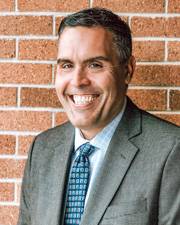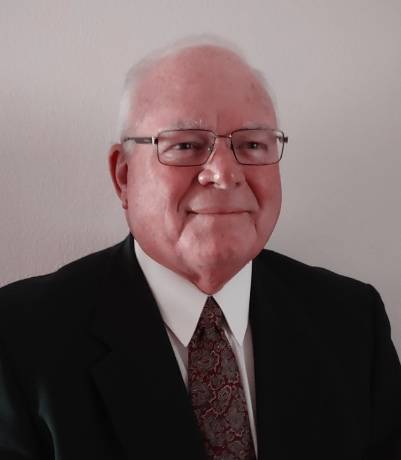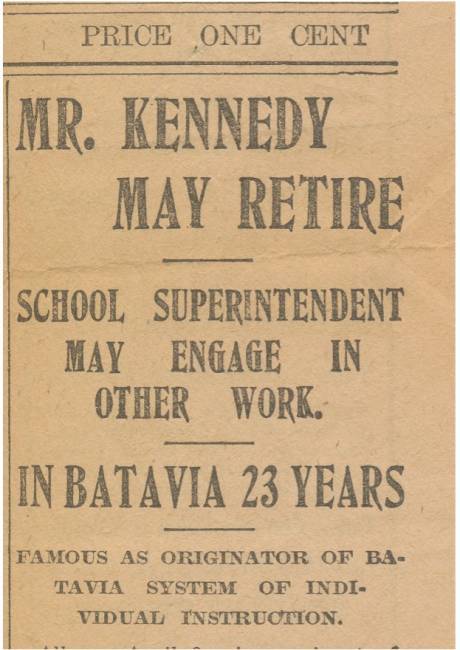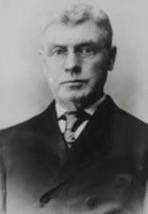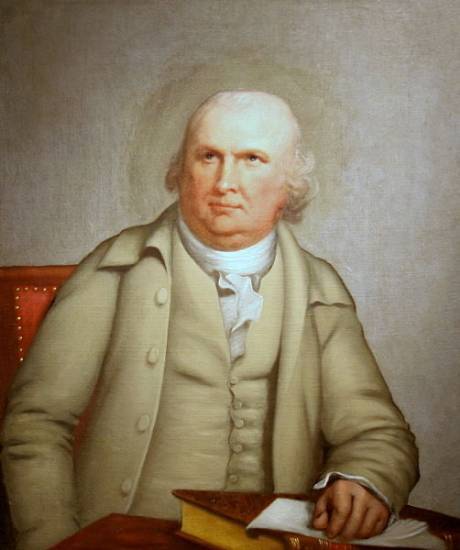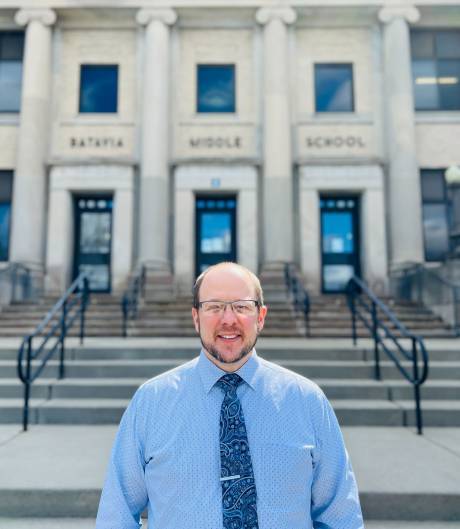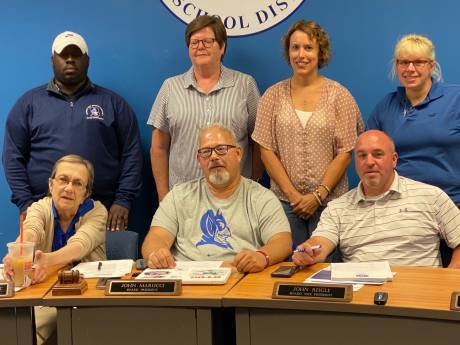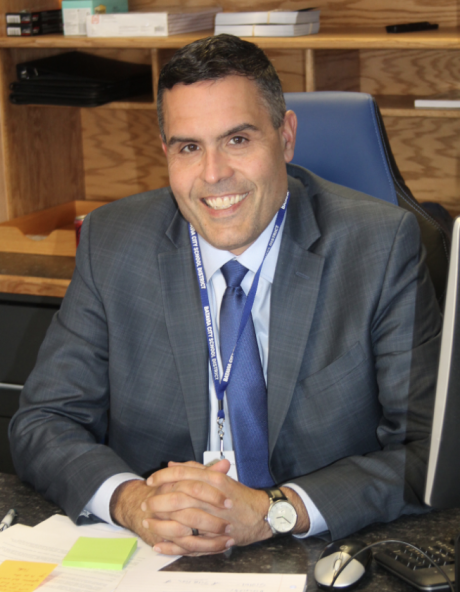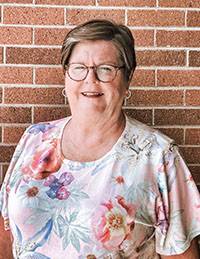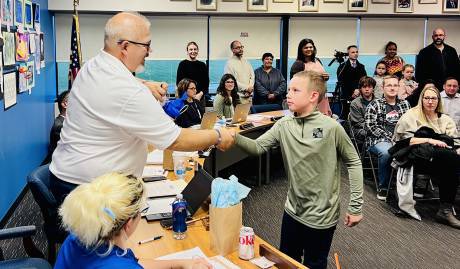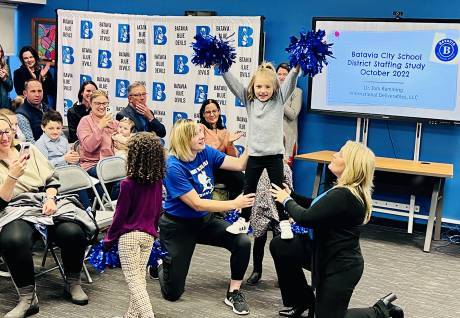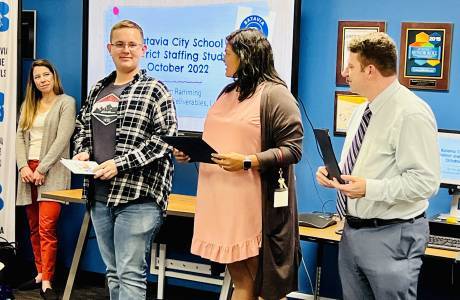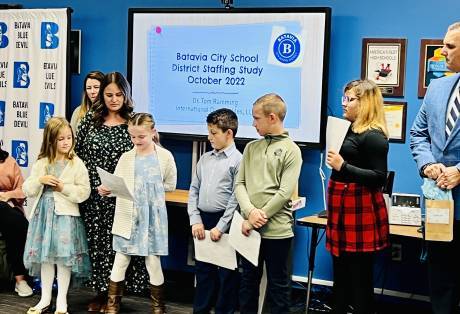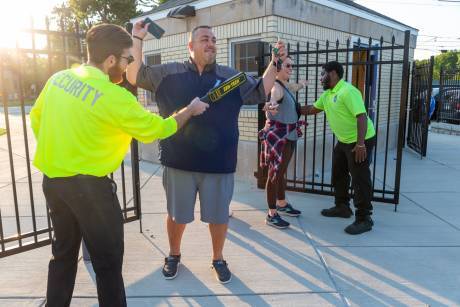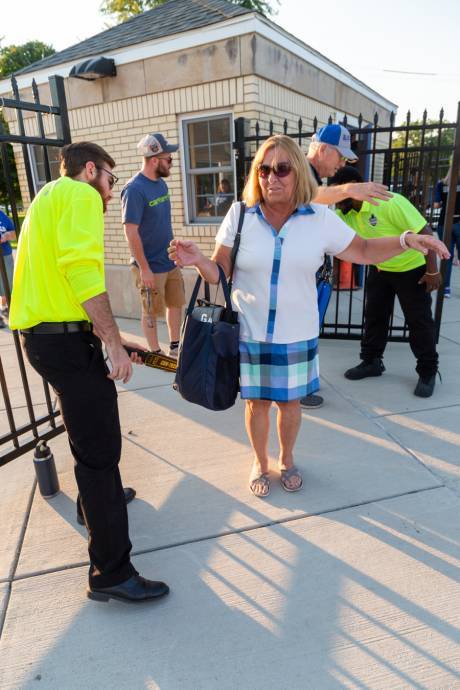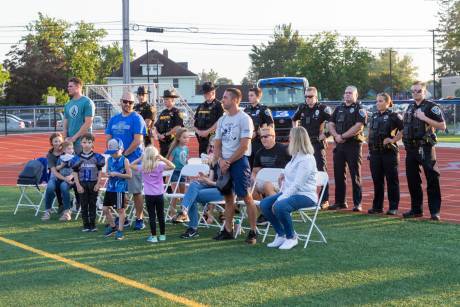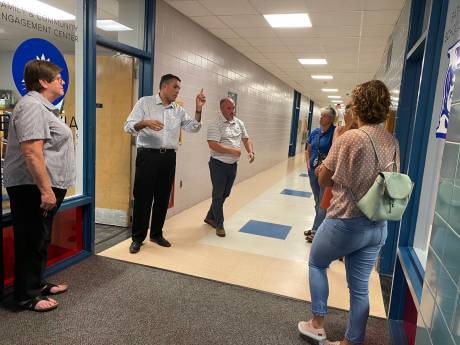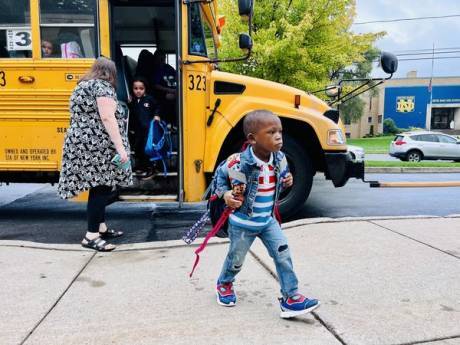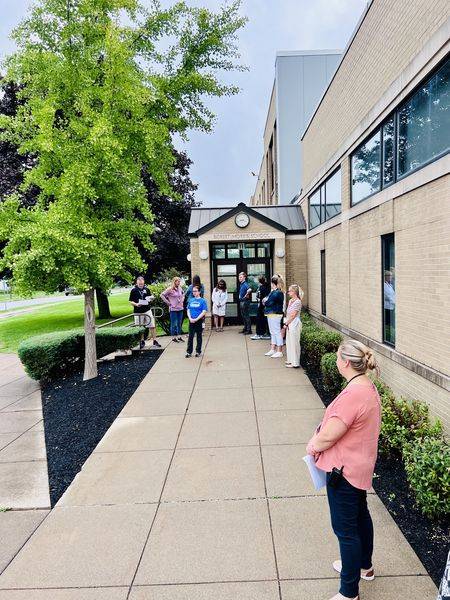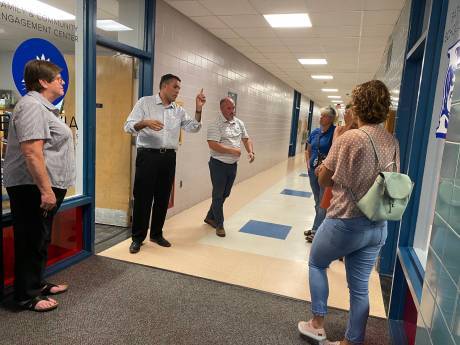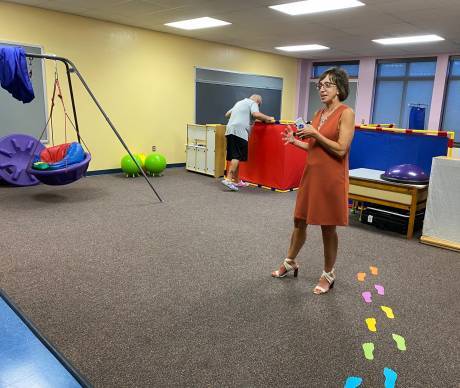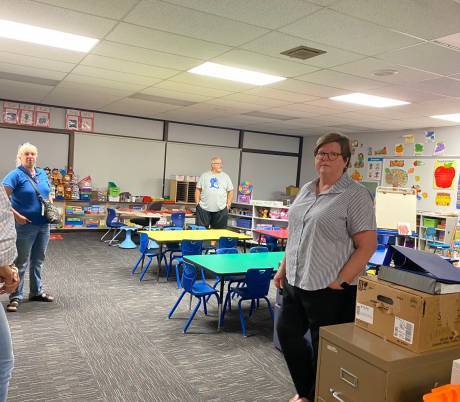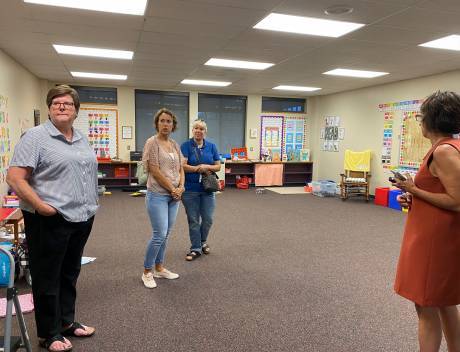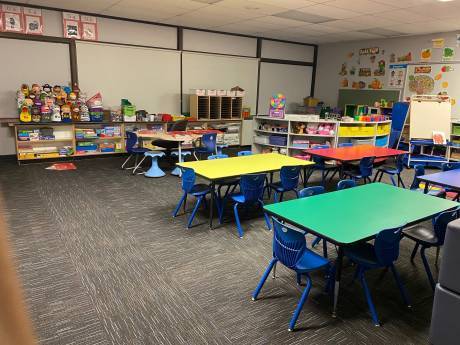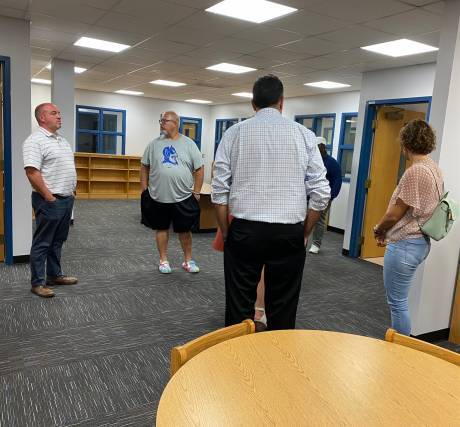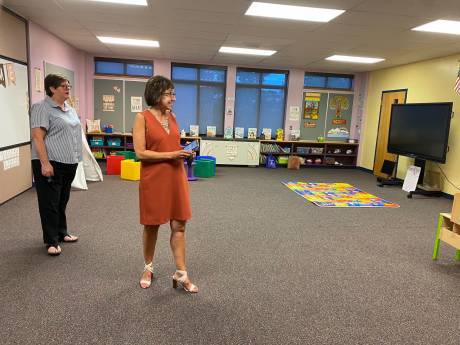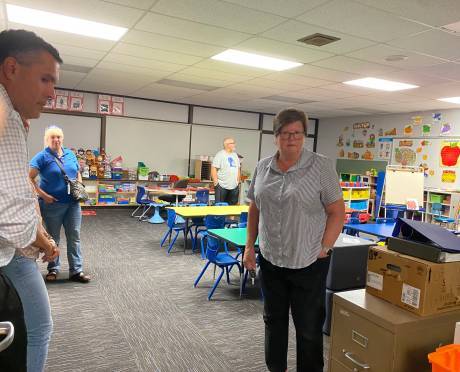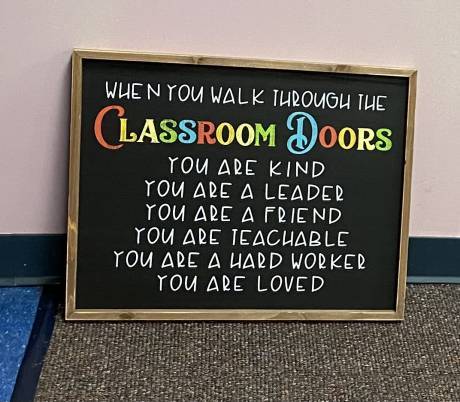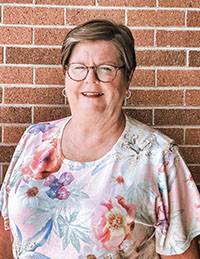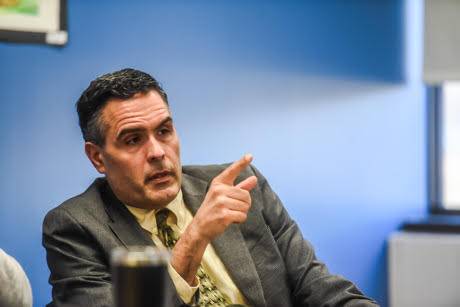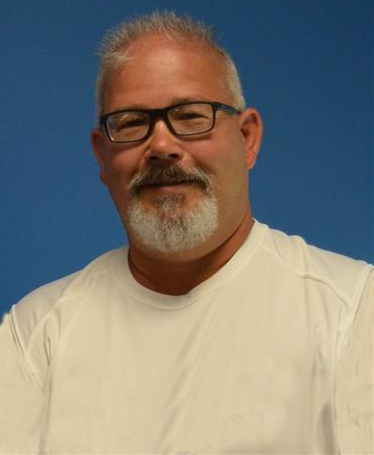Ken Hay, one of the most relentless, unforgettable and endearing forces behind the music program at Batavia City Schools, passed away Tuesday, Feb. 28. He is being remembered by former students, staff and friends for his inspiration, talent, confident swagger, and compassionate spirit.
Joshua Pacino, a 2001 Batavia High School grad, has lots of fond and funny memories of Hay, who was band director at the high school from 1982 to 2003.
"Ken Hay was full of bombast and bluster, but he was an incredibly kind teacher. In my freshman year of high school, I was hanging out with my girlfriend at the football game and missed the bus back to school,” Pacino said. “After walking into the band room 30 minutes late, I was expecting to be thoroughly reprimanded. Instead, he just gave me a look and told me my uniform and trombone were by the door and needed to be put away.
"He could be tough on his students. During a rehearsal, he would yell and holler about wanting more from us or explaining that his grandmother could do it better and she was dead,” Pacino said. “But, he was also a champion for them. You would often hear him yell out ‘Nice!’ or ‘Great job!’ in the middle of a piece, sometimes even during the concert, because he wanted you to know you had done well.”
Not only has Pacino walked away with musical lessons and memories from a beloved teacher, but he too is a music teacher, at Batavia Notre Dame High School.
“Most of the music teachers I know chose their profession because one of their own music teachers had a profound impact on their lives. I have been fortunate to have had several such teachers over the years. Each shaped who I am as a teacher, a musician, and as a person,” Pacino said. “When I left music school, I was afraid he was going to think I was a failure. He was, as I should have known, incredibly understanding, kind, and supportive of my decision. That kindness would continue over the years as I finally decided to return to music school, earned my degrees, and began my teaching career.
"We lost Ken Hay today, but I know that his talent and compassion will live on through the decades worth of students that he taught and the uncountable number of lives upon which he had a profound impact,” Pacino said.
A positive influence
Tom Jones played trumpet and met Hay in the summer of 1984 as a freshman in marching band. The 1988 BHS grad played in field marching, concert, jazz, and parade marching bands, and “anything else Mr. Hay requested of me,” he said. That included playing “Taps” at the end of Memorial Day parades in his junior and senior years, and “Amazing Grace” at a service for Terry Anderson, who was being held hostage in Iran.
“Mr. Hay was always providing ways, for me at least, to help me grow as a young man and encourage me. For example, every Batavia Pageant of Bands, a senior band member was chosen to be his second in charge, attend meetings, coordination of adult volunteers, all band students,” Jones said. “I was with the program all four years at BHS. Band was my favorite subject, and Mr. Hay was my most influential teacher. I saw him every day, some evenings for jazz or marching band practices, home football games, occasional weekends for pageant competitions, parades, etc.
“He was a very big part of my life growing up, and one the reasons why I have continued to play in multiple musical organizations since graduating BHS,” Jones said.
Michael Muller posted his online condolences, crediting Hay for making Alexander into "a fabulous band program, in the 70s, before he came to Batavia."
"He inspired me to be the Band Director I am today. He got me started with HS NYSSMA Solos, my college auditions, all of it. The last time I saw him was when we honored him at the 2003 Batavia Pageant of Bands, which was the year he retired," Muller said. "He was a fabulous educator, conductor, leader, mentor and friend. He was the real deal, no excuses, and always got us to do great things, be it in concert band, marching band, pit orchestra, or jazz ensemble. RIP Hayster!!"
The year 1987 was a hard one for Jason Mapes, just a teenager at the time, and it was Hay who lifted him from constant pain by being attentive and caring.
“My father passed away unexpectedly in February of 1987, and that was a dark time for me, I was only 13. I had just learned how to play the trumpet a few years back under his wife, Melinda. That summer, just a few months before starting high school, Mr. Hay kept me busy and distracted. I helped him put in his swimming pool on Ellicott Street,” Mapes said. “This one time, at band camp, I learned patience and discipline and hard work. I began to gain confidence and friends and shared such wonderful memories. I participated in everything I could: band, marching band, jazz band (my favorite), chorus, orchestra. I was in the pit for two school musicals and almost became a music educator. I would have put my horn down for good before high school had it not been for Mr. Hay.”
He said he’ll never forget the manner in which Hay taught him how to shake hands. He never let you do it without putting all you had into it.
“To this day, I still play in a few local music groups, and whenever I shake someone's hand, I almost rip it off!” Mapes said.
Lifelong lessons
Batavia City Schools Superintendent Jason Smith obtained music education from not only Hay but also other deep-rooted instruction, he said.
“As a proud BHS music alumnus, Class of 1990, I am saddened by the passing of our beloved Mr. Hay. He was not only an excellent music teacher of mine for four years, I learned valuable life and leadership lessons from him that serves me well to this day,” Smith said. “He was one of the first to contact me when I was named superintendent here, and his message of congratulations meant so much to me. Music has been and is an important part of my life, and Mr. Hay has been an integral part of the strong BCSD music tradition.”
You can tune a tuba, but you can’t tune a fish. That was one of Hay’s final true/false exam questions that Bob Pastecki remembers from his student days in 1986-87. Pastecki played trumpet for concert and jazz band, and mellophone for marching band.
What did it mean to be part of the music program?
“My younger brother was the athlete. This gave me something to do as an extracurricular activity,” Pastecki said.
“I now run The Mark Time Marchers, a fire department marching band that does 25-30 parades a year," he said. "I also serve as the Finance Manager for The Batavia Concert Band. So music is still a big part of my life.”
Playing mellophone was interesting, he said, because it is in a different key than trumpet, and his music teacher never told him that.
“He only told me that the notes on the staff were the same fingerings for both instruments. That meant I played the wrong scale to warm up,” Pastecki said. “He looked right behind me and said, ‘One of you trumpets is AWFULLY flat.’ It took me 15 years to tell him it was me. We had a good laugh at that.”
Batavia Board of Education member Alice Ann Benedict knew Ken Hay not only through the board but also because her daughter Emily had him in the band throughout her years in the district.
“Mr. Hay was a wonderful person and a very capable director of the music department. He was enthusiastic about introducing music into the lives of many of the students, starting at a very young age,” Benedict said. “Emily said to me that Mr. Hay was one of her favorite and most influential teachers. I will remember that he always had a smile on his face. He was always positive about improving the music department, and he was a dedicated teacher to the students of the district.”
Kenneth “Ken” Hay was a 1966 graduate of Byron-Bergen Central School and participated in Concert Band, Concert Choir, Yearbook Club, and Wrestling. After graduating high school, he received his bachelor’s degree in Music Education from Fredonia State College, after which he continued with graduate work at Fredonia, Brockport and Geneseo state colleges, and the University of New Hampshire at Durham.
He taught music at East Irondequoit, Alexander and Batavia school districts. He started working as Batavia City High School band director from 1982 until his retirement in 2003, being named Music Department chairman in 1991. Hay played a significant role in the success of Batavia’s concert and marching bands, jazz ensemble, and the musical pit orchestra.
For many years, he organized the Pageant of Bands in Batavia to show the musical talents of high school bands. He directed the pit orchestra for Batavia Rotary Club productions for many years.
Hay served as president of the Genesee-Wyoming Music Educators’ Association and was a member of the New York State School Music Association. Accolades include Paul Harris Fellowship (awarded by the Rotary Club), the University of Rochester’s Teaching in Secondary Schools Award (1995), recognition by Warner School of Education as being a Teacher of Excellence (2003) and earned a GO ART! Genesee-Orleans Community Arts Award (2003).
Hay shared his musical passion, inspiring students to "make music, not just play music,” and was a 2020 Musician of Note, a wall of fame to honor past BHS graduates in music.
As Jason Mapes said, “RIP Mr. Hay — you will be missed!”


